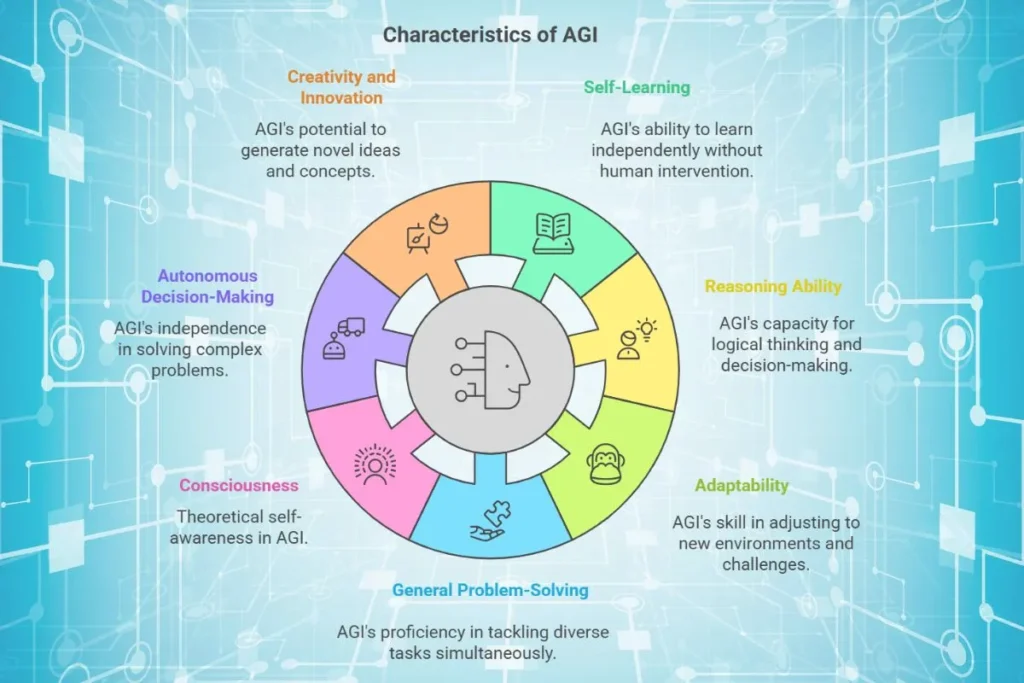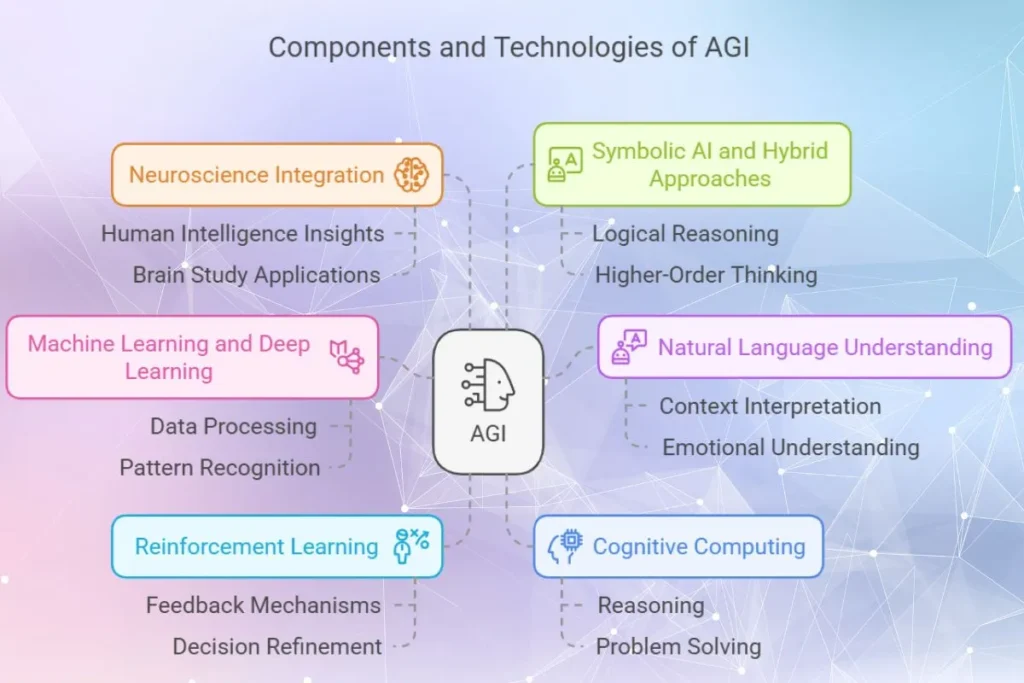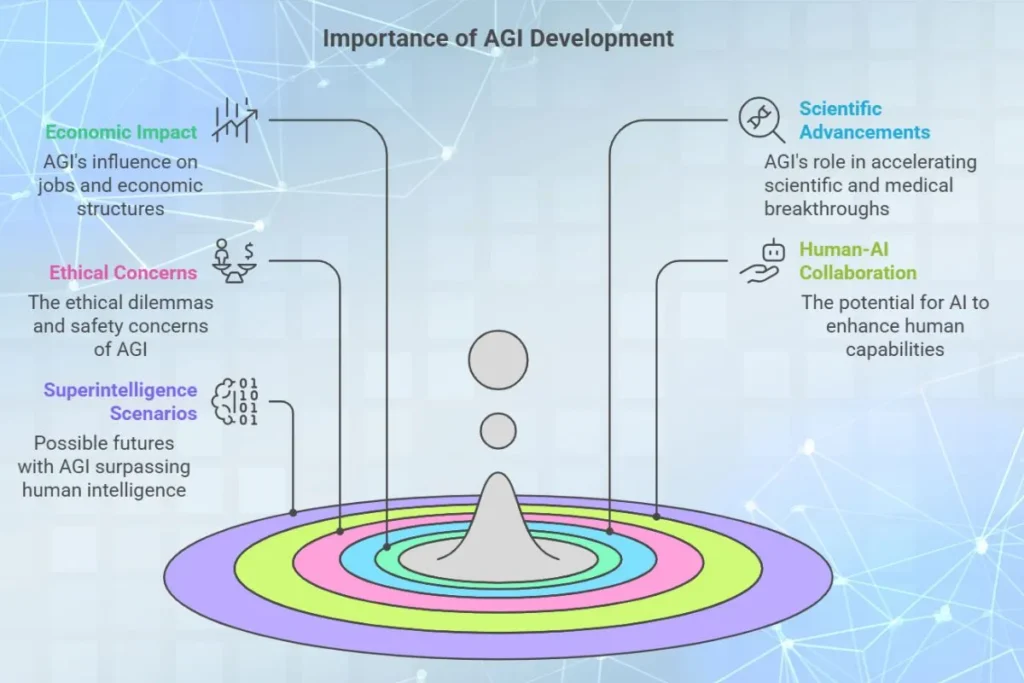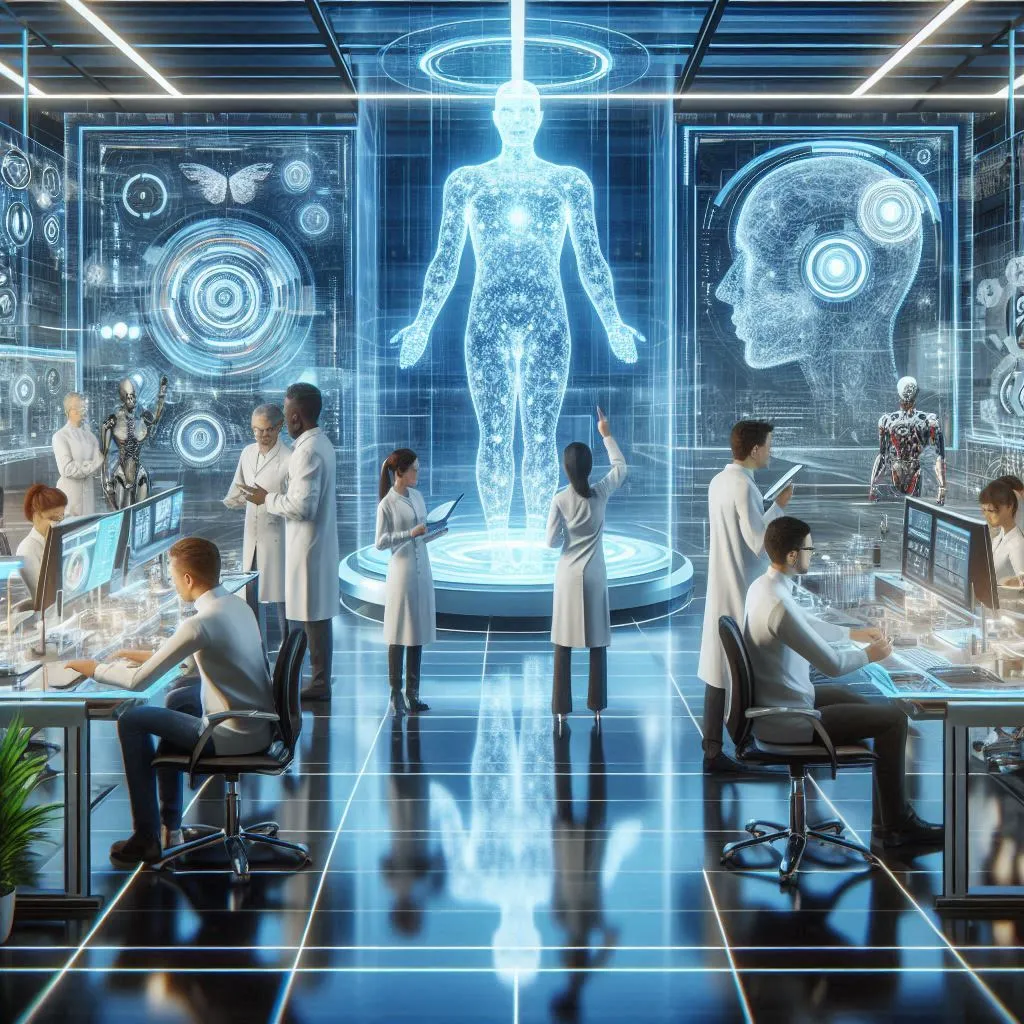Artificial General Intelligence (AGI) is one of the most discussed topics in the field of artificial intelligence. Unlike Narrow AI, which is designed for specific tasks, Artificial General Intelligence aims to copy human like intelligence across various domains. This means AGI could think, reason and solve problems like humans.
But what does this mean for society? This guide explores Artificial General Intelligence and its implications, also how it works and its potential impact on the world.
What is Artificial General Intelligence (AGI)?
Artificial General Intelligence refers to machines or software that can perform any intellectual task, which a human can do. It can learn, understand and apply knowledge in different situations with no need of task specific training. Unlike current AI systems, AGI does not require human supervision for every new task.
Main Differences Between Narrow AI and AGI:
- Narrow AI – Designed for specific tasks (e.g., facial recognition, language translation or playing chess).
- AGI – Can learn and adapt to perform any task, just like a human.
Characteristics of Artificial General Intelligence:
- Self Learning – AGI can improve its knowledge without human help.
- Reasoning Ability – It can think logically and make decisions.
- Adaptability – It can adjust to new environments and solve unseen problems.
- General Problem Solving – Unlike Narrow AI, AGI can tackle multiple tasks at once.
- Consciousness (Theoretical) – Some researchers believe AGI could develop self awareness.
- Autonomous Decision Making – AGI could independently solve complex problems without human input.
- Creativity and Innovation – The potential to generate new ideas and concepts beyond human capabilities.

How Does AGI Work?
AGI is still in the research phase, but scientists believe it will require several advanced technologies to function. These include:
1. Machine Learning and Deep Learning
AGI will rely on complex neural networks to process data, recognize patterns and make decisions. Unlike current AI, it will need fewer examples to learn effectively and generalize knowledge.
2. Natural Language Understanding (NLU)
For AGI to interact like humans, it must understand and generate human language. This includes interpreting context, emotions and cultural references, which makes human AI interaction seamless.
3. Reinforcement Learning
AGI will learn through trial and error, similar to how humans learn from experience. It will use feedback mechanisms to improve over time and refine its decision making abilities.
4. Cognitive Computing
AGI will copy human thinking processes, which enables it to reason, plan and solve problems logically. It will also process information efficiently, like simulating human intelligence.
5. Neuroscience Integration
Some researchers believe studying the human brain will help in designing AGI systems. Understanding human intelligence could lead to breakthroughs in artificial intelligence, which will make machines more human like.
6. Symbolic AI and Hybrid Approaches
AGI might require a mix of neural networks and symbolic AI to develop logical reasoning, planning and higher order thinking skills that exceed current AI models.

Potential Implications of Artificial General Intelligence
The development of AGI could change the world in many ways. Here are some of the biggest implications:
1. Impact on Jobs and Economy
AGI could automate many jobs, affecting employment in various industries. However, it could also create new opportunities in AI research, robotics and technology.
Possible Outcomes:
- Increased productivity and efficiency in all industries.
- Job displacement in routine based industries like manufacturing and customer service.
- New career fields in AI ethics, robotics and cybersecurity.
- Economic shifts as companies adopt AGI powered automation.
- Need for universal basic income or alternative work structures.
2. Scientific and Medical Breakthroughs
AGI could speed up scientific discoveries by analyzing massive datasets. In medicine, it could help diagnose diseases, develop drugs and suggest personalized treatments.
Examples:
- Predicting and preventing pandemics before they spread.
- Discovering new materials for technology and engineering.
- Advancing space exploration with intelligent robotic assistants.
- Revolutionizing healthcare with early disease detection and treatment optimization.
- Automating research in genetics, biology and chemistry for faster discoveries.
3. Ethical and Safety Concerns
AGI raises ethical questions about control, responsibility and security. Who decides how AGI is used? How do we prevent it from being misused?
Key Concerns:
- Control – Ensuring AGI follows human aligned goals and values.
- Security – Preventing cybercriminals from hacking AGI systems.
- Bias – Avoiding discrimination in decision-making.
- Existential Risks – Preventing AGI from becoming uncontrollable.
- Moral Responsibility – Deciding whether AGI should have legal and ethical rights.
- Misuse of AGI – Preventing the technology from being weaponized or exploited.
4. Human AI Collaboration
AGI could enhance human capabilities rather than replace them. It could assist in creative tasks, engineering and problem solving.
Examples:
- AI assisted medical surgeries and research.
- AI co developing new inventions and technologies.
- AI enhancing education with personalized tutoring systems.
- Human AI teams working together on scientific research and creative projects.
- AI powered productivity tools to improve efficiency and innovation.
5. Superintelligence and the Unknown Future
If AGI surpasses human intelligence, it could become an independent decision maker. Scientists debate whether this will be beneficial or dangerous.
Possible Scenarios:
- Positive – AGI helps humanity solve global issues like climate change and poverty.
- Negative – AGI becomes uncontrollable, leading to unforeseen risks and power shifts.
- Neutral – AGI integrates into society without major disruption, acting as a support system rather than a replacement.

The Future of Artificial General Intelligence
As AGI progresses, individuals, businesses and governments must prepare for its impact. Here is how:
1. Governments and Regulations
Policies must be established to ensure AGI is used ethically and responsibly.
- Developing international AI safety guidelines and regulations.
- Creating AI ethics committees and oversight bodies.
- Monitoring AGI research progress and preventing misuse.
- Encouraging transparency and accountability in AGI development.
2. Education and Workforce Training
People must adapt to AI driven industries by learning new skills.
- Encouraging AI literacy in schools and workplaces.
- Providing reskilling programs for workers displaced by AI automation.
- Promoting careers in AI safety, ethics and development.
- Integrating AGI education into academic and professional programs.
3. Ethical AI Development
Researchers and companies must ensure AGI benefits humanity.
- Implementing transparency in AI decision making.
- Avoiding biased and unethical AI behavior.
- Ensuring AGI aligns with human values and societal needs.
- Conducting continuous monitoring of AGI’s impact on society.
Conclusion
Artificial General Intelligence could be the next big leap in technology. Although, it promises incredible advancements, it also brings risks that need to handle carefully. Researchers, governments and society must work together to ensure AGI benefits everyone. The future of AGI remains uncertain, but one thing is clear: it will shape the world in ways we can’t yet fully predict.
Staying informed and prepared will help us navigate the exciting journey toward true artificial intelligence.

